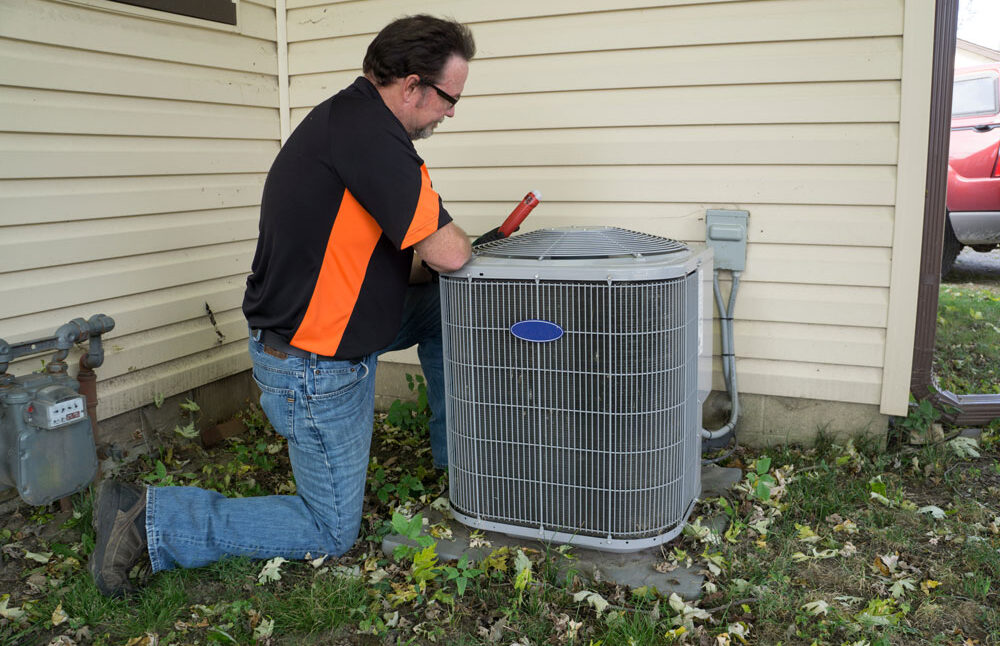As the weather cools and you shift from cooling to heating, your air conditioning unit deserves a little attention before winter sets in.
Winterizing your central AC not only protects it from harsh weather but also helps extend its lifespan and ensures it’s ready to perform when warm weather returns. Neglecting this step can lead to costly repairs or even system failure.
Why winterize your AC unit?
Central air conditioning systems are built to withstand the elements, but ice, snow and debris can still cause damage. Moisture can lead to rust and corrosion, while debris and pests can clog or damage key components. Taking time to properly winterize your unit helps prevent these issues, saves money on future repairs and ensures your AC is ready for another season of reliable cooling.
Steps to winterize your central air AC unit
Turn off the power
Locate the electrical disconnect box near your outdoor unit and switch it off. This prevents the AC from accidentally turning on during a warm spell, which could draw water into the system and cause freezing damage.
Clean the unit thoroughly
Remove leaves, dirt and debris from around and inside the unit. Use a garden hose to gently rinse off dust and grime from the condenser coils. Make sure the unit is completely dry before moving to the next step.
Inspect for damage
Check for visible signs of wear, rust or damage on the unit and its wiring. If you notice anything unusual, call a professional for an inspection before winter sets in.
Cover the unit
Place a waterproof, breathable cover over your outdoor AC unit. This protects it from snow, ice and falling debris. Avoid using plastic tarps, which can trap moisture, and promote mold or rust. Secure the cover with bungee cords or straps to keep it in place through winter storms.
Insulate exposed pipes
Wrap any exposed pipes or refrigerant lines with foam insulation sleeves. This step helps prevent freezing and cracking during cold snaps.
Clear the area
Remove any objects, plants or debris from around the unit. Keeping the area clear allows for proper airflow and makes it easier to inspect the unit throughout the winter.
Check and change the air filter
While this step is part of regular maintenance, it’s a good time to check and replace your air filter. A clean filter ensures efficient operation when you switch back to cooling in the spring.
Schedule a professional inspection
For peace of mind, have a licensed HVAC contractor inspect your system before winter. They can spot issues you might miss and ensure your AC is fully winterized and protected.
Why call HVAC 911 for AC winterization?
While some winterization steps seem simple, a professional touch ensures nothing gets overlooked. Here’s why calling HVAC 911 for a local heating and cooling contractor referral is the best choice:
• Licensed and Insured Contractors: HVAC 911 connects you with local pros who are fully licensed, insured and highly trained.
• Over 10,000 Hours of Training: All contractors in the HVAC 911 network employ technicians who receive extensive training and undergo rigorous background checks.
• Thorough Service: Professionals will clean, inspect and protect your AC unit, addressing any hidden issues before they become costly problems.
• Peace of Mind: With HVAC 911, you know your system is in expert hands and will be ready for the next cooling season.
• Fair Pricing: Contractors offer industry-standard pricing with no hidden fees.
Schedule your AC winterization today
Don’t wait until the first frost to protect your AC unit. Proper winterization saves time, money and stress when spring returns. Call HVAC 911 for a referral to a trusted local heating and cooling contractor who will guide you through the process and ensure all the work is done correctly.
